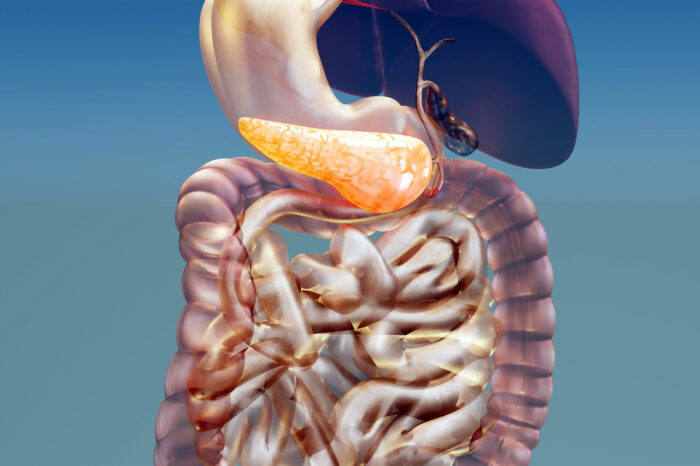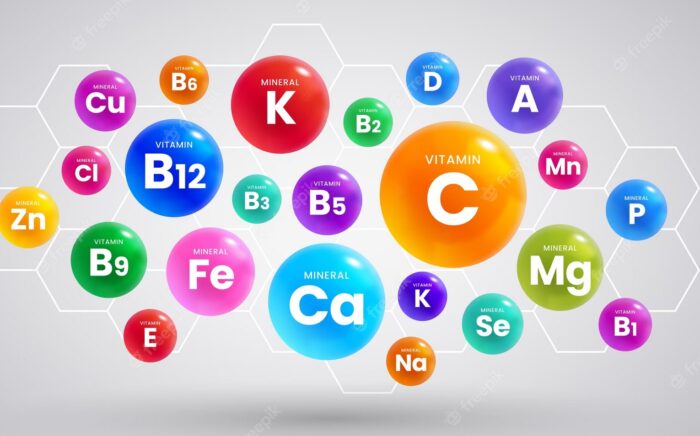
The term ‘gut health’ is often used to refer to the digestive system’s overall health, including the stomach and intestines. Gut health is an integral part of general health and well-being, as it is responsible for the digestion and absorption of nutrients from our food. A healthy gut helps to maintain the balance of beneficial bacteria in one’s stomach, which is vital for proper digestion and absorption of nutrients.
Gut health supplements are products designed to improve the health of the digestive system by providing essential nutrients, such as vitamins, minerals, probiotics, and prebiotics. These supplements can help to improve the balance of beneficial bacteria in the gut, which can help to improve digestion and absorption of nutrients, as well as reduce inflammation, improve immunity, and help to prevent certain diseases.
Types of Gut Health Supplements
Different gut health supplements are available, each offering various benefits.
Probiotics

Probiotics are beneficial bacteria that live in the gut. In addition to their well-documented impact on digestion, absorption of nutrients, and immunity, probiotics have also been associated with various other positive effects. One intriguing area of research is the potential link between probiotics and belly fat reduction. While more studies are needed to fully understand the mechanisms at play, preliminary findings suggest that certain strains of probiotics may contribute to healthier body composition and aid in the management of excess abdominal fat. This emerging field of “belly fat probiotics” holds promise as a natural approach to support weight management and overall metabolic health.
One area where probiotics have shown promise is in mental health. Emerging research suggests that the gut-brain connection is influenced by the microbiome, and certain strains of probiotics may help alleviate symptoms of anxiety and depression. While more studies are needed to fully understand this connection, the potential of probiotics in mental health treatment is an exciting area of exploration.
Moreover, probiotics have been found to have a positive impact on skin health. The microbiome of the gut can influence the skin’s microbiome, and imbalances in these microbial communities have been associated with skin conditions such as acne and eczema. By promoting healthy gut microbiota, probiotics may indirectly contribute to healthier skin.
It’s important to note that not all probiotics are the same, and different strains can have varying effects. Choosing the right probiotic supplement or food source is crucial to reap the intended benefits. Consulting with a healthcare professional or a registered dietitian can help determine the most suitable probiotic for an individual’s specific needs.
Prebiotics
Prebiotics are dietary fibres that do not get digested by the body but instead act as food for the beneficial bacteria in the gut. By consuming prebiotics, one can help to nourish the beneficial bacteria in the stomach and promote a healthy balance of bacteria. Prebiotics get found in certain foods, such as bananas, oats, onions, garlic, and asparagus. One can also find prebiotic supplements in powder, capsule, or liquid form.
Digestive Enzymes

Digestive enzymes are proteins responsible for breaking down food into smaller components that the body can absorb and use. There are many different types of digestive enzymes, which are essential for proper digestion and absorption of nutrients. Digestive enzyme supplements can benefit those with digestive issues, such as irritable bowel syndrome (IBS), or those who suffer from malabsorption.
Fibre Supplements
Fibre is an essential part of a healthy diet, as it helps to keep the digestive system functioning correctly and can help to prevent constipation. Fibre supplements are available in many forms, including powders, capsules, and drinks. Fibre supplements can benefit those with digestive issues, obesity, or diabetes.
Herbal Supplements

Herbal supplements are derived from plants and have been used for centuries to treat various ailments, including digestive issues. Some of the most popular herbs for gut health include ginger, liquorice, peppermint, and fennel. Herbal supplements can take many forms, such as teas, capsules, powders, or tinctures. While herbal supplements are generally safe, those with underlying medical conditions or taking other medications should consult a doctor before taking a herbal supplement.
Amino Acid Supplements
Amino acids are the building blocks of proteins and are essential for a healthy digestive system. Amino acid supplements can benefit those with digestive issues, as they can help repair and restore damaged cells in the gut. Amino acid supplements are available in many forms, including capsules, powders, and drinks.
Vitamins and Minerals

Vitamins and minerals are essential for a healthy digestive system and overall health. Vitamin and mineral supplements are available in many forms, including capsules, powders, and specialized formulas for specific conditions. However, those with underlying medical conditions or taking other medications should consult their doctor before taking a vitamin or mineral supplement.
Omega-3 Supplements
Omega-3 fatty acids are essential to a healthy diet, as they help reduce inflammation, improve digestion, and boost immunity. Omega-3 supplements are available in many forms, including capsules, powders, and specialized formulas. Omega-3 supplements are generally safe for most people. However, those with underlying medical conditions or taking other medications should consult their doctor before taking an omega-3 supplement.
Benefits of Gut Health Supplements

Gut health supplements can provide a variety of benefits to both the gut microbiome and overall health. The most important use is that they help to restore balance to the gut microbiome. It gets done by providing essential nutrients and probiotics that help support the growth of beneficial bacteria in the gut. It helps reduce inflammation, improve digestion and absorption of nutrients, and strengthen the immune system.
Gut health supplements also help to improve digestive health. They can help to reduce symptoms of digestive disorders such as irritable bowel syndrome, Crohn’s disease, and ulcerative colitis. They can also help to reduce bloating and other digestive issues. By improving digestive health, gut health supplements can also help to reduce the risk of developing certain types of cancer, such as colon cancer.
Further, gut health supplements can help reduce inflammation in the body, which can have various beneficial impacts. Reducing inflammation can help to reduce pain, improve joint health, and reduce the risk of chronic diseases such as heart disease and diabetes.
Gut health supplements can also help to improve mental health. The gut microbiome gets intimately connected to the brain, and studies have shown that an imbalance in the gut microbiome can hurt mental health. Gut health supplements can help restore balance in the gut microbiome, improving mood and reducing the risk of mental health disorders such as depression and anxiety.
Finally, gut health supplements can help to improve overall health and well-being. By restoring balance to the gut microbiome, gut health supplements can help improve digestion and nutrient absorption and reduce inflammation throughout the body. It can lead to improved energy levels, sleep, and mental clarity.
Potential Risks of Gut Health Supplements
Although gut health supplements can provide various health benefits, there are also potential risks associated with taking them. These risks include:
Allergic Reactions: Some people may be allergic to certain ingredients in gut health supplements, such as probiotics or prebiotics. If one experiences any signs of an allergic reaction, such as hives, rash, or difficulty breathing, stop taking the supplement and seek medical attention.
Interactions with Medications: Certain gut health supplements may interact with medications, such as antibiotics. Talking to one’s doctor before taking any supplement is essential to ensure it will not interfere with any medicines one takes.
Conclusion

Gut health supplements can provide various health benefits, including improved digestion and absorption of nutrients, reduced inflammation, and improved immune system function.











